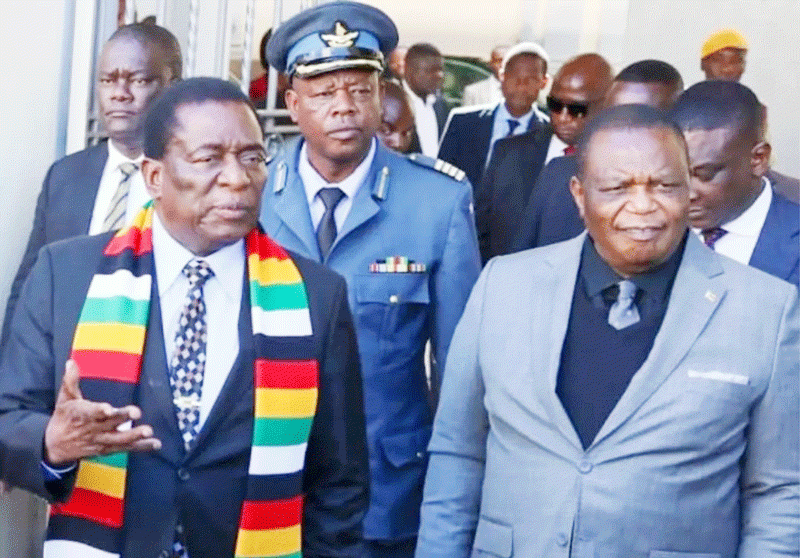
BY RONALD ZVENDIYA
The Financial Action Task Force (2019) defines Virtual Assets (VAs) as a digital representation of value that can be digitally traded, or transferred, and can be used for payment or investment purposes.
Virtual Assets Service Providers (VASPs) means any natural or legal person who exchanges between virtual assets and fiat currencies; transfer virtual assets; safe keep and/or administer virtual assets or instruments enabling control over virtual assets, and participate in the sale of virtual assets.
In June 2019, the Financial Action Task Force (FATF) adopted an Interpretive Note to Recommendation 15 to further clarify how the FATF requirements should apply to VAs and VASPs, in particular concerning the application of the risk-based approach to VA activities or operations and VASPs; supervision or monitoring of VASPs for Anti Money Laundering (AML) and Combating of Financing of Terrorism(CFT) purposes; licensing or registration; preventive measures, such as customer due diligence, recordkeeping, and suspicious transaction reporting, among others; sanctions and other enforcement measures; and international co-operation.
The implications of these FATF requirements include a change in the regulatory landscape and supervision; reduction of financial crime in the cryptocurrency sector; regulators will have a better understanding of how criminals are using Vas; lead to stronger Know Your Customer policies and practices-leading to higher customer confidence in VASPs, and might attract new users to the VAs.
Virtual Assets (VA) and related services have the potential to spur financial innovation and efficiency, but their distinct features also create new opportunities for money launderers, terrorist financiers, and other criminals to launder their proceeds or finance their illicit activities.
The ability to transact across borders rapidly not only allows criminals to acquire, move, and store assets digitally often outside the regulated financial system but also to obfuscate the origin or destination of the funds and make it harder for reporting entities to identify suspicious activity on time.
These factors add hurdles to the detection and investigation of criminal activity by national authorities.
- Chamisa under fire over US$120K donation
- Mavhunga puts DeMbare into Chibuku quarterfinals
- Pension funds bet on Cabora Bassa oilfields
- Councils defy govt fire tender directive
Keep Reading
In Zimbabwe, VASPs are not regulated by any laws. However, the regulated entities are prohibited from facilitating the purchase or sale of VAs in any way knowingly or otherwise.
Therefore, bank accounts associated with VAs will be closed when they are identified.
Thus, the operation of unregulated VASPs increases the financial sector’s vulnerability to money laundering and terrorist financing risks.
In addition, the risks associated with VA include:
Anonymity: criminal may gain access to financial services using a false name or may be allowed to access the services by not disclosing true identity.
Elusiveness: identification of beneficial owner is difficult to establish as a registered customer and actual beneficiaries can be different persons.
Rapidity: the ability to move money quickly and practically anywhere at any time makes layering much easier than in traditional transfer methods that can require face-to-face interaction with bank personnel at each step.
Cyber risk: means any risk of financial loss, disruption, or damage to the reputation of an organisation from some sort of failure of its information technology systems.
Compliance risk: is the potential risk that some VASPs might not adhere to the laws, regulations, guidelines, and specifications relevant to their business.
In order to succeed in virtual assets regulation, the regulators need to understand the products they are regulating and the money laundering cycles. The main types of money laundering cycles include:
Placement occurs when proceeds of crimes are deposited in banks, mobile wallets, or used to buy cryptocurrency through online cryptocurrency exchanges. Criminals often use exchanges with fewer levels of compliance with AML- CFT regulations for the purpose.
Layering occurs when transactions are structured to hide the trail of illegal funds. For instance, through conversion of one cryptocurrency into another via online cryptocurrency exchanges, or participation in an Initial Coin Offering. Criminals can also move their crypto holdings to another country.
Integration involves the use of over-the-counter (OTC) brokers who act as intermediaries between buyers and sellers of cryptocurrencies. This is the most common technique used by criminals and attracts very high commission rates for the OTC brokers.
The financial sector regulators also need to be aware of the methods used by money laundering through virtual assets. Some of the methods include:
Crypto mixing — also known as tumblers, help cryptocurrency users to conduct transactions by mixing their cryptos with other users. A typical mixing service takes cryptos from a client, sends them through a series of various addresses, and then recombines them, resulting in ‘clean’ cryptos.
Peer to peer Crypto networks: these are decentralised networks used by criminals to send funds to another destination, often in another country where there are crypto exchanges with no stringent AML regulations. These exchanges help them convert crypto into fiat money to purchase luxury goods.
Online gambling: Many gambling sites accept payments in cryptocurrencies. Criminals can purchase chips with cryptos and cash them out after a few transactions.
The regulators should also develop a financial technology regulatory framework covering cryptocurrencies.
This requires consulting widely with stakeholders intending to seek a common understanding and shared vision on the appropriate legal framework for the VASPs that is progressive and evidence-based.
Thereafter, the Financial Intelligence division can then issue regulations and guidance requiring VASPs to register.
The registered service providers will then be required to seek supervisors’ endorsement for their activities.
The financial sector regulators also need to collaborate with the private sector and technology providers in reducing the vulnerability of virtual assets being used in money laundering and terrorist financing activities.
The government can strategically assesses new and emerging risks by engaging the players involved in transactions involving virtual assets exchange.
The consultation process with the market players or stakeholders will provide regulatory clarity for issuers, creators, marketers, buyers and sellers, investors, and financial advisors.
The financial sector regulators can set up a task force to understand the substantial potential of applications of distributed ledger technology, and growing evidence of the risks associated with crypto assets.
The task force will also establish the types of financial services activity to which regulation is applied.
Thus, whether the regulation applies to a particular crypto asset instrument or activity can only be decided on a case-by-case basis.
Implementation of the travel rule is one of the ways of guarding against the use of virtual assets for money laundering.
The travel rule refers to how the FATF applies its wire transfer rules to crypto assets.
This requirement establishes that, for any virtual asset transfer, VASPs must obtain and hold accurate information on the originator and beneficiary and submit this information to the next financial intermediary in the transaction.
In conclusion, the financial sector regulator will need to define a regulatory parameter and detect unlicensed activities. In addition, there should be a task force responsible for virtual assets oversight.
Thus, there is a need for making sure that a legal framework is available, and sufficient attention is given to money laundering and terrorist financing risks.
This will prevent the misuse of virtual assets for money laundering and terrorist financing
- Ronald Zvendiya is an independent economist: rzvendiya@gmail.com.
*These weekly a articles are coordinated by Lovemore Kadenge, an independent consultant, past president of the Zimbabwe Economics Society and past president of the Chartered Governance & Accountancy Institute in Zimbabwe. Email – kadenge.zes@gmail.com and Mobile no. +263 772 382 852










